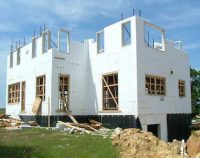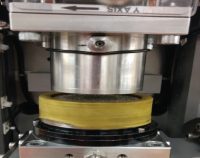Cost Benefit of ICF: 2 PDH
$12.00
This online course is based on a guide that provides cost comparisons of ICF construction to standard residential wood-frame construction, a comprehensive cost analysis of the monthly costs of home ownership for wood-frame and ICF homes, and a detailed discussion regarding many of the structural and energy performance benefits gained through the use of ICFs.
The student must take a multiple-choice quiz consisting of ten (10) questions at the end of this course to earn PDH credits.
SPECIFIC KNOWLEDGE OR SKILL OBTAINED
This course teaches the following specific knowledge and skills:
- Become familiar with ICF construction
- Be made aware of the many benefits gained through the use of ICF construction
- Comparative performance and cost comparison of ICF home vs wood frame home
- Structral safety and hazard mitigation
- Energy cost comparison of ICF home
CERTIFICATE OF COMPLETION
You will be able to immediately print a certificate of completion after passing a 10 question multiple-choice quiz. The quiz can be retaken unlimited times until a passing grade of 70% or better is earned. This course satisfies 2 professional development hours (PDH) of continuing education.
Related Courses
Curing of Portland Cement Concrete Pavements: 4 PDH
$24.00 Add to cartIn this course the student will gain detailed, research-based guidance on the curing process for concrete pavements, including pre-construction planning, methods of curing (initial and final), material selection, environmental considerations, and techniques to verify curing effectiveness. It emphasizes best practices to ensure long-term pavement performance and reduce early-life concrete distress.Instructor: Raymond Bosek, PESPECIFIC KNOWLEDGE OR SKILL OBTAINED
This course teaches the following specific knowledge and skills:
- Explain the role of curing in achieving durable and strong concrete pavement, and identify consequences of inadequate curing.
- Distinguish between the initial and final curing periods and describe their specific requirements and timing.
- Evaluate environmental and material conditions that influence curing needs, including bleeding rates, evaporation rates, and concrete temperature.
- Apply appropriate curing techniques—such as curing compounds, water-based methods, and sheet materials—based on project-specific conditions.
- Identify factors contributing to plastic shrinkage and thermal cracking, and implement corrective actions to mitigate these issues during paving.
- Verify curing effectiveness through practical methods, including visual inspection, reflectometry, and temperature/moisture measurement tools.
CERTIFICATE OF COMPLETION
You will be able to immediately print a certificate of completion after passing a 20 question multiple-choice quiz. The quiz can be retaken unlimited times until a passing grade of 70% or better is earned. This course satisfies four (4) hours of professional development (PDH).
Preview CourseClick “Preview Course” to view prior to purchaseClick “Add to Cart” to purchaseLaboratory Testing for Geotechnical Design and Construction: 5 PDH
$30.00 Add to cartIn this course the student will understand the intricate details of laboratory testing of subsurface soils and rocks in order to obtain values of their engineering properties necessary for design.Instructor: Raymond Bosek, PESPECIFIC KNOWLEDGE OR SKILL OBTAINED
This course teaches the following specific knowledge and skills:
- Explain common laboratory test methods
- Discuss laboratory testing equipment for soil and rock samples
- Discuss testing procedures
- Explain measured parameters
- Understand common guidelines for testing soils and rocks
CERTIFICATE OF COMPLETION
You will be able to immediately print a certificate of completion after passing a 20 question multiple-choice quiz. The quiz can be retaken unlimited times until a passing grade of 70% or better is earned. This course satisfies five (5) hours of professional development (PDH).
Preview CourseClick “Preview Course” to view prior to purchaseClick “Add to Cart” to purchase




